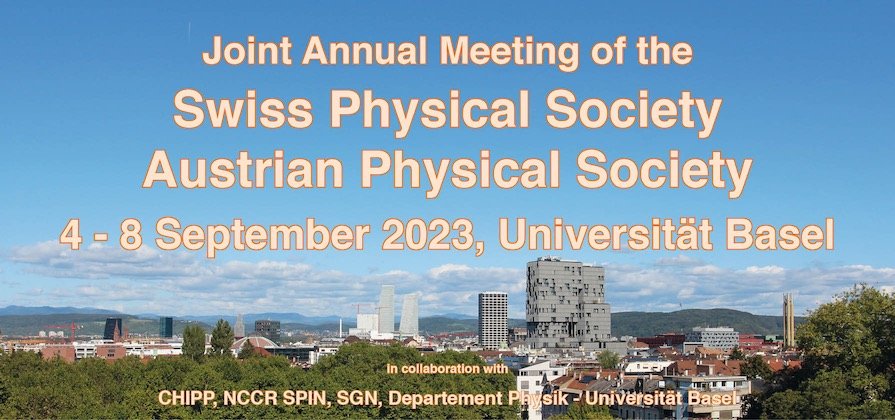Speaker
Mario Di Luca
(Laboratory of Quantum Physics (LQP), Institute of Physics, Ecole Polytechnique Fédérale de Lausanne (EPFL), 1015 Lausanne, Switzerland)
Description
In solid-state systems, strong correlations cause the emergence of quasiparticles that are immune to local environmental perturbations. An example of such a system is the Quantum Hall Effect, in which electrons confined in two dimensions and subjected to a high perpendicular magnetic field give rise to fractionally charged quasiparticles (anyons) that are topologically protected. The statistics of anyons can be studied by interferometry techniques. To study the statistical behavior of anyons we use bilayer graphene in Fabry-Perot interferometer geometry. In this paper I will describe the techniques used in the fabrication process and some interferometry results.
Author
Mario Di Luca
(Laboratory of Quantum Physics (LQP), Institute of Physics, Ecole Polytechnique Fédérale de Lausanne (EPFL), 1015 Lausanne, Switzerland)
Co-authors
Prof.
Kenji Watanabe
(Research Center for Functional Materials, National Institute for Materials Science, 1-1 Namiki, Tsukuba 305-0044, Japan)
Dr
Takashi Taniguchi
(International Center for Materials Nanoarchitectonics, National Institute for Materials Science, 1-1 Namiki, Tsukuba 305-0044, Japan)
Prof.
Mitali Banerjee
(Laboratory of Quantum Physics (LQP), Institute of Physics, Ecole Polytechnique Fédérale de Lausanne (EPFL), 1015 Lausanne, Switzerland)
